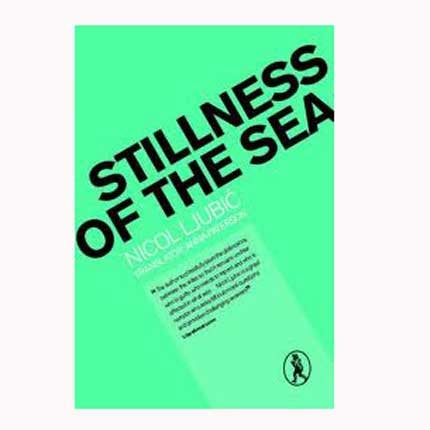Stillness of the Sea, by Nicol Ljubic
Love bears wounds of war secrets

Your support helps us to tell the story
This election is still a dead heat, according to most polls. In a fight with such wafer-thin margins, we need reporters on the ground talking to the people Trump and Harris are courting. Your support allows us to keep sending journalists to the story.
The Independent is trusted by 27 million Americans from across the entire political spectrum every month. Unlike many other quality news outlets, we choose not to lock you out of our reporting and analysis with paywalls. But quality journalism must still be paid for.
Help us keep bring these critical stories to light. Your support makes all the difference.
It is winter in The Hague. A new trial has opened at the International Crime Tribunal for former Yugoslavia.
Zlatko Simiæ stands accused of leading 42 Bosniaks, including women and children, to a horrifying death on 14 June 1992: this based on a real incident, the Pionirska Street fire.
He, it is alleged, posed as a Red Cross worker and guaranteed Muslim civilians safe passage. Instead the family was robbed, humiliated and burned alive. There was a single survivor, an 11-year-old girl. This young woman is now ready to give evidence.
The majority of onlookers are law students; others have a personal reason for attending, among them Robert, the narrator of this courageous short novel (translated by Anna Paterson). He, a junior historian, has travelled from Berlin, the city where he met the woman he loves. Ana, a Serb, appreciative of the capital's "freedom and decadence", has transformed his life. On a scholarship for the families of Nazi persecution victims, she has a penchant for Serbian schnapps and Shakespeare.
Her father, professor of English literature at the University of Sarajevo, encouraged her always to carry King Lear, for "no-one understands the human condition better than the bard". He jokingly referred to himself as Titus Andronicus, a macabre comparison in light of the revelation that drives a wedge. Ana's last name is Simiæ; the man in the dock her father. The secrets Ana has kept from Robert are sizeable and include what she knew, or didn't, about Zlatko's alleged crimes.
Aged 14 when the Bosnian wars began, Robert had felt detached beyond the momentary shock of bite-size newsflashes, in spite of his own semi-Croatian heritage. His political awareness and interest in identity were awakened by his love for Ana. Robert feels wounded and betrayed by her apparent lack of trust, and embarks on "a desperate quest to understand", culminating in a visit to Sarajevo and Višegrad.
Alternating between sober observations of the trial and memories of burgeoning love, the author tempts the reader out of the comfort zone on questions of individual versus collective guilt; the apathy of the uninvolved; the selective truths of reporting; the role of memory and limits of empathy. It is an ambitious canvas, one that mostly convinces. Nicol Ljubiæ's journalistic prowess is apparent, but there are moments of poetry too.
Join our commenting forum
Join thought-provoking conversations, follow other Independent readers and see their replies
Comments